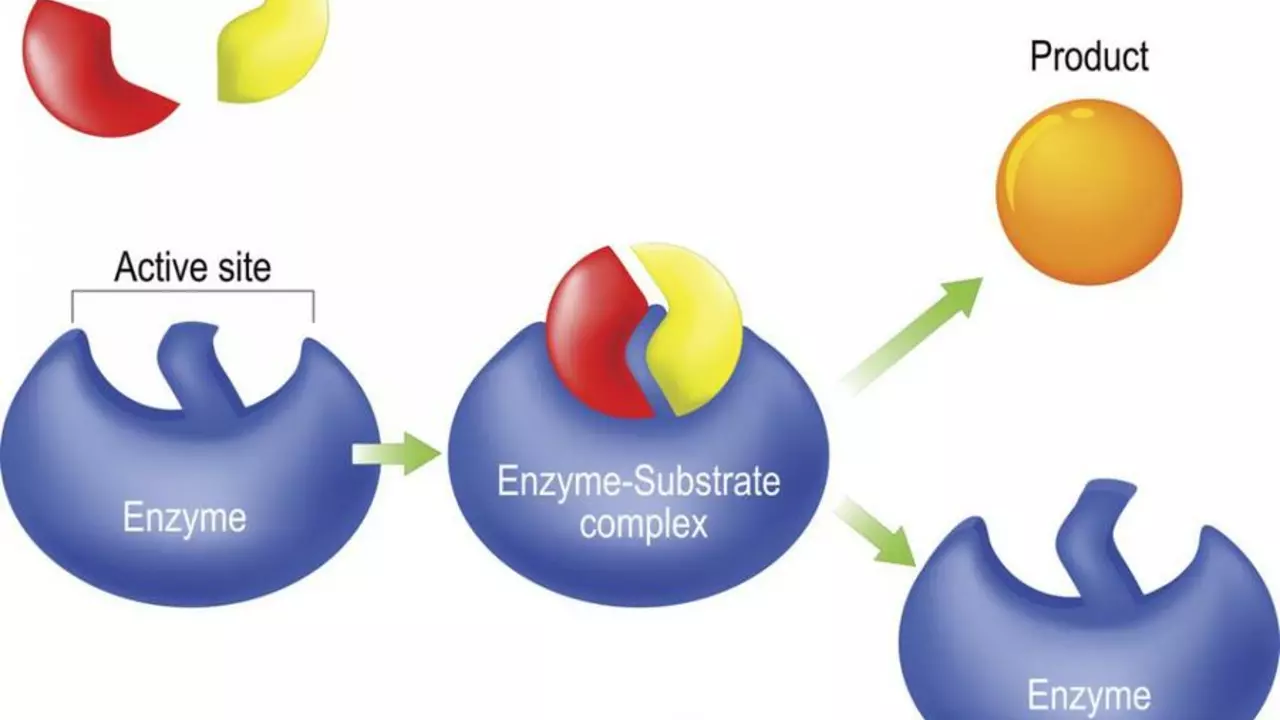Understanding Enzymes: The Catalysts of Life
In the realm of biochemistry, enzymes are the unsung heroes, silently orchestrating numerous biological functions that keep us alive. They are proteins that act as catalysts, accelerating chemical reactions within our bodies. Without enzymes, these reactions would occur too slowly to support life. They aid digestion, support the immune system, and are involved in almost every function of our bodies, from breaking down food into nutrients to DNA replication.
It's easy to overlook the importance of these microscopic workers because we can't see them. But a closer look at their role can make us appreciate their significance. For instance, enzymes such as amylase and lipase help break down carbohydrates and fats in our diet, aiding digestion and nutrient absorption. Others, like DNA polymerase, play a crucial role in the replication and repair of our genetic material. This is just scratching the surface of the myriad roles enzymes play in our bodies.
Identifying Enzyme Deficiency
Given the crucial role enzymes play, it's not surprising that a deficiency can have severe health repercussions. The signs of enzyme deficiency are often subtle and can be mistaken for other health issues. Symptoms can include chronic fatigue, skin problems, frequent colds and infections, digestive issues, and slow wound healing. It's important to pay attention to these symptoms as they may indicate a lack of enzymes in our body.
Some of these symptoms may be temporary and can be resolved with a balanced diet and lifestyle changes. However, persistent symptoms may indicate a deeper problem, such as a genetic condition that affects enzyme production. In such cases, medical intervention may be necessary. It's always advisable to consult a healthcare professional if you suspect an enzyme deficiency.
The Impact of Diet on Enzyme Production
Our diet plays a significant role in enzyme production. Raw foods are rich in natural enzymes that aid digestion and nutrient absorption. However, the modern diet is often high in processed foods, which lack these beneficial enzymes. This puts a strain on our bodies, forcing them to produce more enzymes to compensate for the lack.
Adding more raw fruits and vegetables to our diet can help boost enzyme levels. Fermented foods like yogurt, kimchi, and sauerkraut are also excellent sources of enzymes. Additionally, certain supplements can help replenish enzyme levels, especially for individuals with specific health conditions that affect enzyme production.
Supplementing Enzymes: A Potential Solution
For individuals with enzyme deficiencies, supplements can be a beneficial addition to their healthcare regimen. These supplements contain specific enzymes that aid in digestion, boost the immune system, and support overall health. However, like any supplement, they should be used under the guidance of a healthcare professional.
It's important to remember that while supplements can help replenish enzyme levels, they are not a substitute for a healthy diet and lifestyle. Ensuring a balanced diet, regular exercise, and sufficient sleep are fundamental to maintaining optimal enzyme levels and overall health.
The Future of Enzyme Therapy
Research into enzymes is ongoing, and future developments hold much promise. Enzyme therapy is already being used to treat certain genetic conditions, such as phenylketonuria and cystic fibrosis. In these cases, individuals lack a specific enzyme, and supplementing this enzyme can help manage the condition.
As our understanding of enzymes grows, so too does the potential for new treatments. For instance, researchers are investigating the use of enzymes in cancer therapy, with promising results. The future of enzyme therapy is exciting, and it underscores the vital role these proteins play in our health.



kris tanev
bro this is so true i literally started eating raw veggies and my digestion went from 'oh god why' to 'wow i feel alive' bruh
no more bloating after curry night